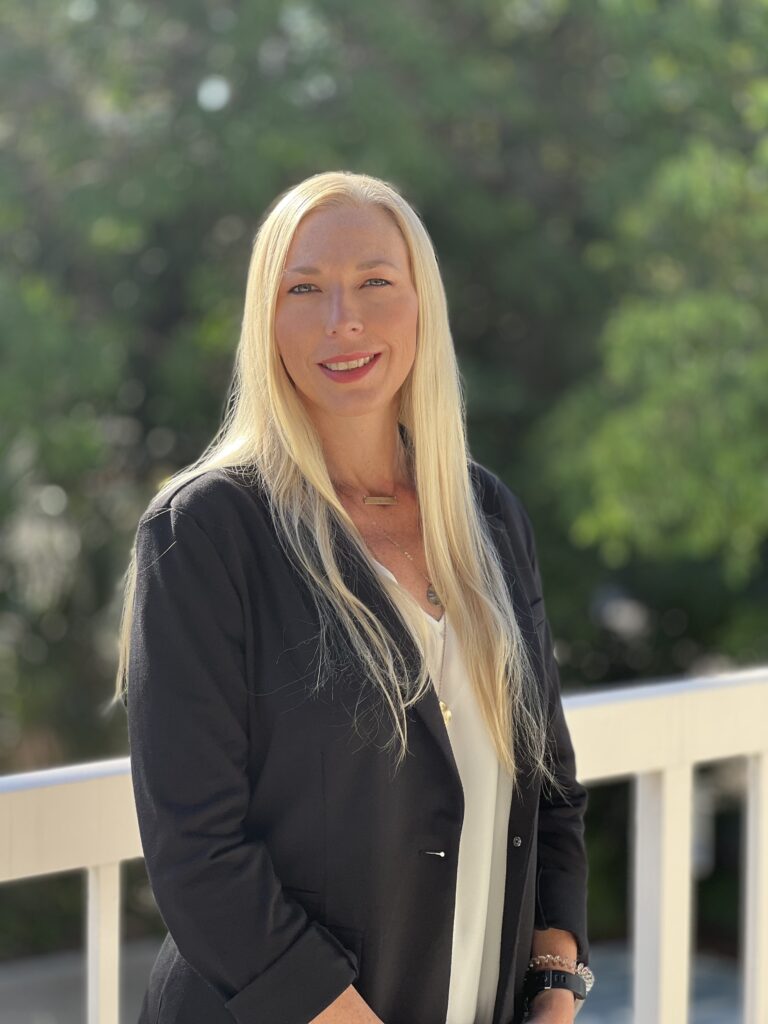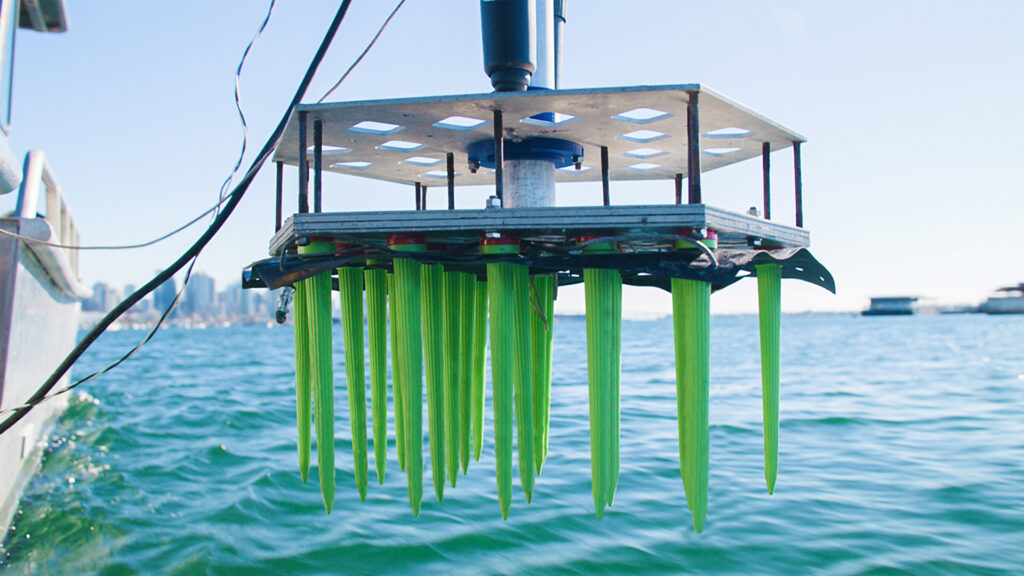By Autumn Bryan, FAU Center for Environmental Studies
The following is a Q&A conducted with Katherine O’Fallon, executive director of the Marine Research Hub. The hub’s mission “is to raise the visibility, reputation, and prestige of South Florida’s oceanographic research institutions and facilitate the transfer of technology into marketable goods and services, resulting in talent attraction and retention and job creation to build our Blue Economy.” This interview has been edited for length and clarity.
Could you tell us a little bit about what you do as the executive director of the Marine Research Hub?

The Marine Research Hub was founded in 2017 by community members from South Florida who recognized that we are surrounded by great academic research institutions. But as businesspeople, they asked, where is the research going? How is it going to leave the lab and be commercialized and deployed to solve our problems?
Founding members of the Marine Research Hub include the Marine Industries Association of South Florida, and the three economic development organizations of South Florida: the Greater Fort Lauderdale Alliance, the Beacon Council of Miami-Dade and the Business Development Board of Palm Beach.
At the Marine Research Hub, the goal is to build a blue economy and connect the dots so we can elevate nature-based and research-based solutions. We want to commercialize and monetize those solutions to develop companies that are going to create jobs, build business and harden our infrastructure, while protecting and preserving the greatest, biggest asset that we have here in Florida, which is our marine and coastal environments.
The new blue economy is a knowledge-based extraction of materials — using data to make more informed decisions so that we can use the ocean in a sustainable way so that we can have economic impacts from it, but also still take care of the environment.
It also goes into just community engagement as well. We think of ourselves as kind of the intersect of all these different bubbles that are out there floating around and make those connections so that people can get things done. And break down some of those silos to get that technology out of the lab. Because the best ideas that stay in the lab are never going to impact the world.
South Florida was recently designated a Climate Resilience Tech Hub. Has this designation had any bearing on what the work you do?
When you talk about the blue economy, it definitely falls under the umbrella of climate resiliency, because we are utilizing the resources sustainably and the oceans have such a bearing on our climate, from the big impact to a local impact as well — with sea-level rise and storms and how much carbon sequestration takes place in the oceans and all of those different things. And so, I love that we get this Climate Resilience Tech Hub designation, because it’s the goal of the Marine Research Hub to bring together all of the regions for collaboration.
It’s like we’re on a parallel trajectory, like we’re driving cars in lanes next to each other. We’re going down the same road. But we’re not together so we’re not going as fast. So, if we can merge all of these roads together, we can get things done more quickly, more efficiently.
Our goal is to connect academia with accelerators and incubators that are in this space for marine solutions, then connect those companies with potential funding opportunities, partnerships and investments.
What are some of the companies you have been working with?

One of the companies that we’re working with is a company called ecoSPEARS. They have a NASA-based technology that can absorb and eliminate toxic persistent chemicals like PFOS and PFAs onsite so that you don’t have to dredge them up and ship them across the country to be incinerated, they can actually deal with it right there.
One of the other companies is called Coral Vita. They are a large-scale coral restoration company. They basically grow corals for restoration. But what they’re doing that is a little different is that they’re commercializing it. They can sell the corals to resorts that want to do restoration, but they also have a coral farm as well.
There is a way to make money and do good for the environment. We’re trying to get funders and investors to see opportunity in companies like Coral Vita, ecoSPEARS, Kind Designs and 1Print. In the past, people used to feel like in order to take care of the environment they just had to give their money away. But the opportunity of the blue economy is showing us that you can invest money and make money and do good all at the same time.
So, it’s not just environmental, it’s also a way to show that this is a huge part of our economy. It’s about being able to live and have an income and the lifestyle that we want, but at the same time taking care of our environment.
What is something that you see the average person can do to help mitigate climate change or help support environmental causes?
Supporting environmental organizations is a way for people if they have the means. But if you don’t necessarily have the funding to support, you can get involved in a lot of local initiatives, waterway cleanups, beach cleanups, different things that are happening in the community. Just be knowledgeable about things in this space. It’s not always about doing things as much as becoming informed about the decisions that are being made, especially when it comes in the political realm of things because you have to be in the know.
It can be overwhelming. But if you start getting involved in some of these organizations, and just reading articles, becoming more aware of what’s going on in your backyard, then you’ll be ready to make a difference when that opportunity comes.
In terms of what choices you’re making — recycling and reusing and reducing or just making conscious efforts to be more environmentally friendly in your day-to-day life. It’s not possible to do everything and not possible to change overnight. That is not what anyone expects, but I think a lot of people, especially kids, feel like if they can’t do a ton. They don’t feel like they’re doing enough so they’re just not going to do anything, right? Or they feel like someone else is going to do it, so they don’t need to. Why do such a little thing like not use a plastic bag?
But that simple act of one thing, if a million kids did that, it would impact the environment. So, I think it’s just putting it into a little bit of perspective as well.
This Q&A was conducted by Autumn N. Bryan, a graduate student at Florida Atlantic University who is pursuing a master’s degree in the geoscience program. She works as a research assistant and reporter for FAU’s Center for Environmental Studies. The center manages and funds The Invading Sea.
Sign up for The Invading Sea newsletter by visiting here. If you are interested in submitting an opinion piece to The Invading Sea, email Editor Nathan Crabbe at ncrabbe@fau.edu.



